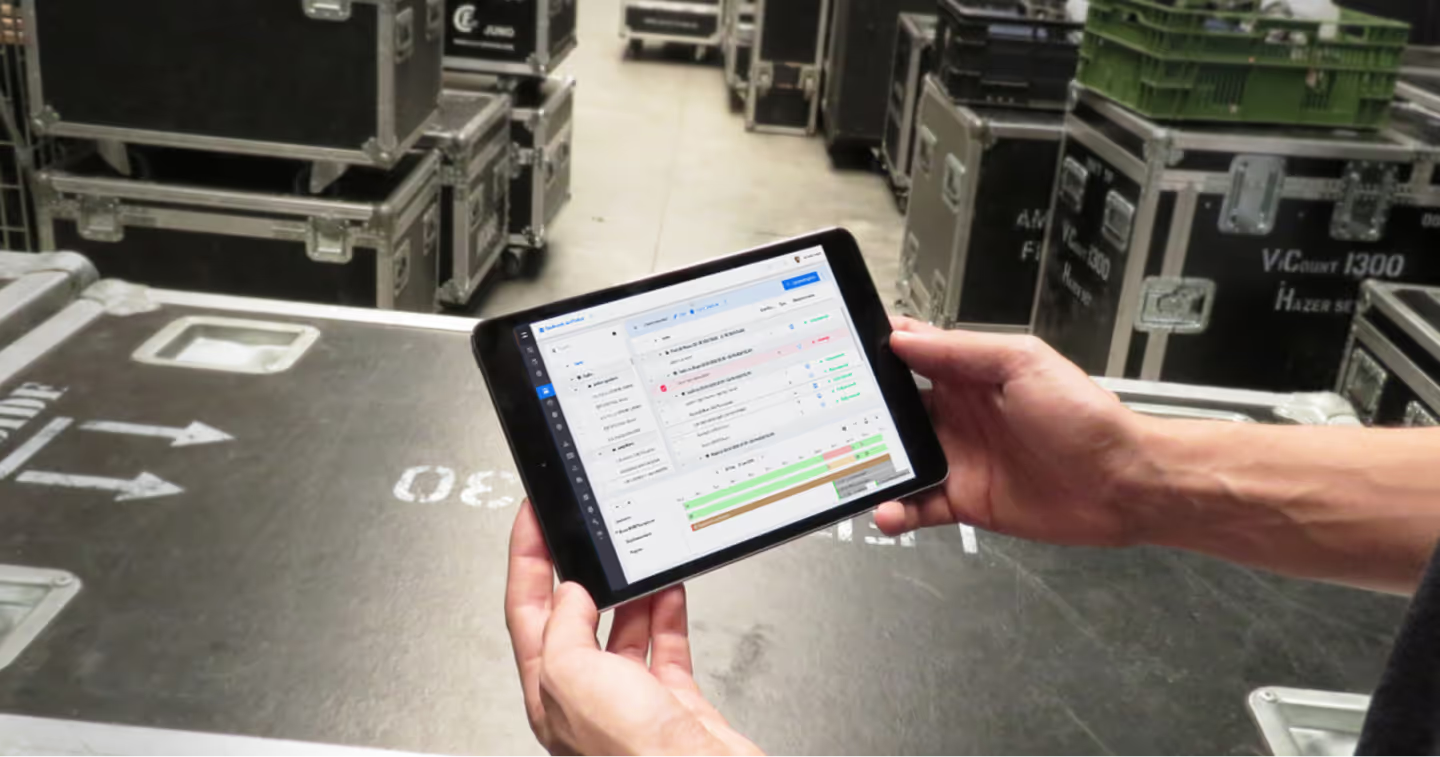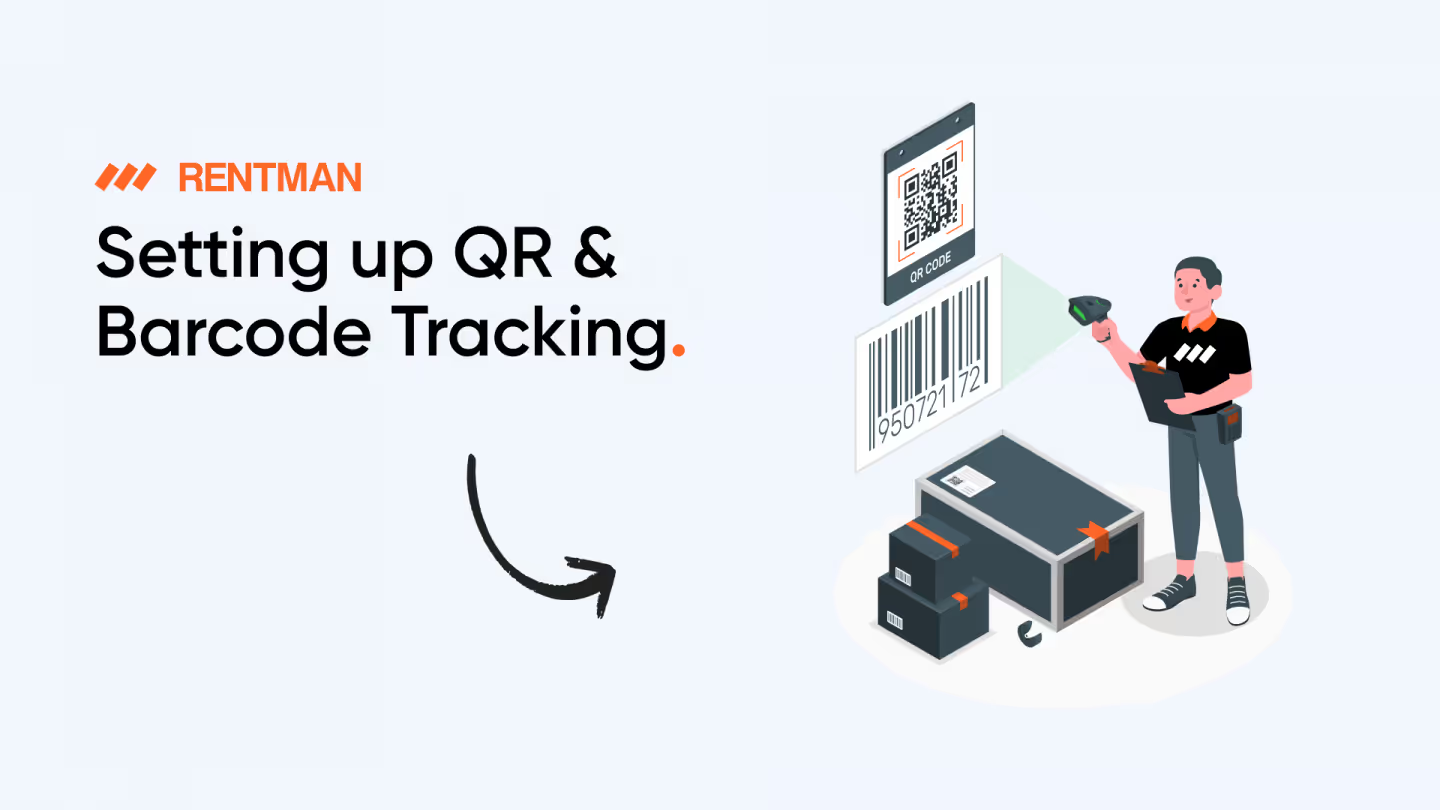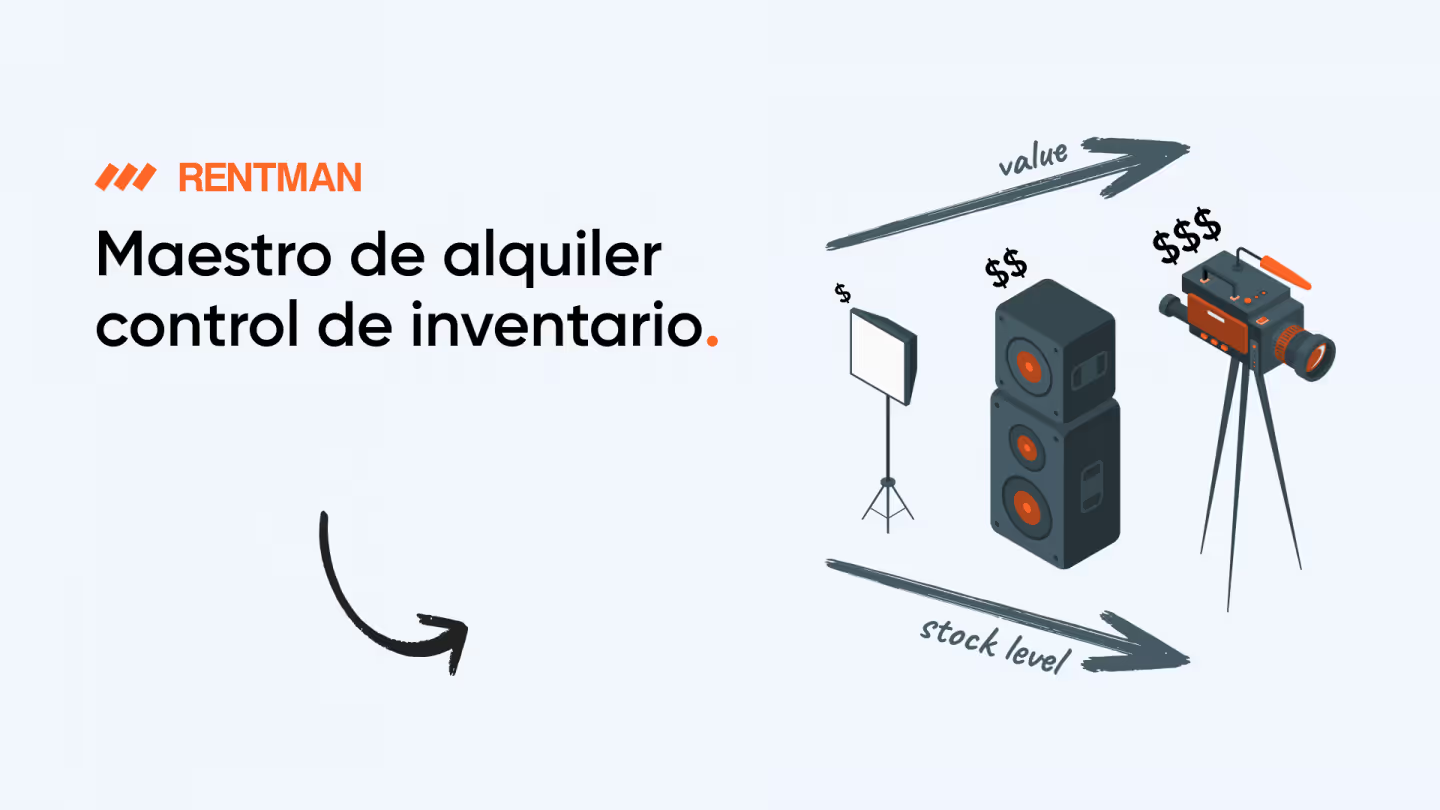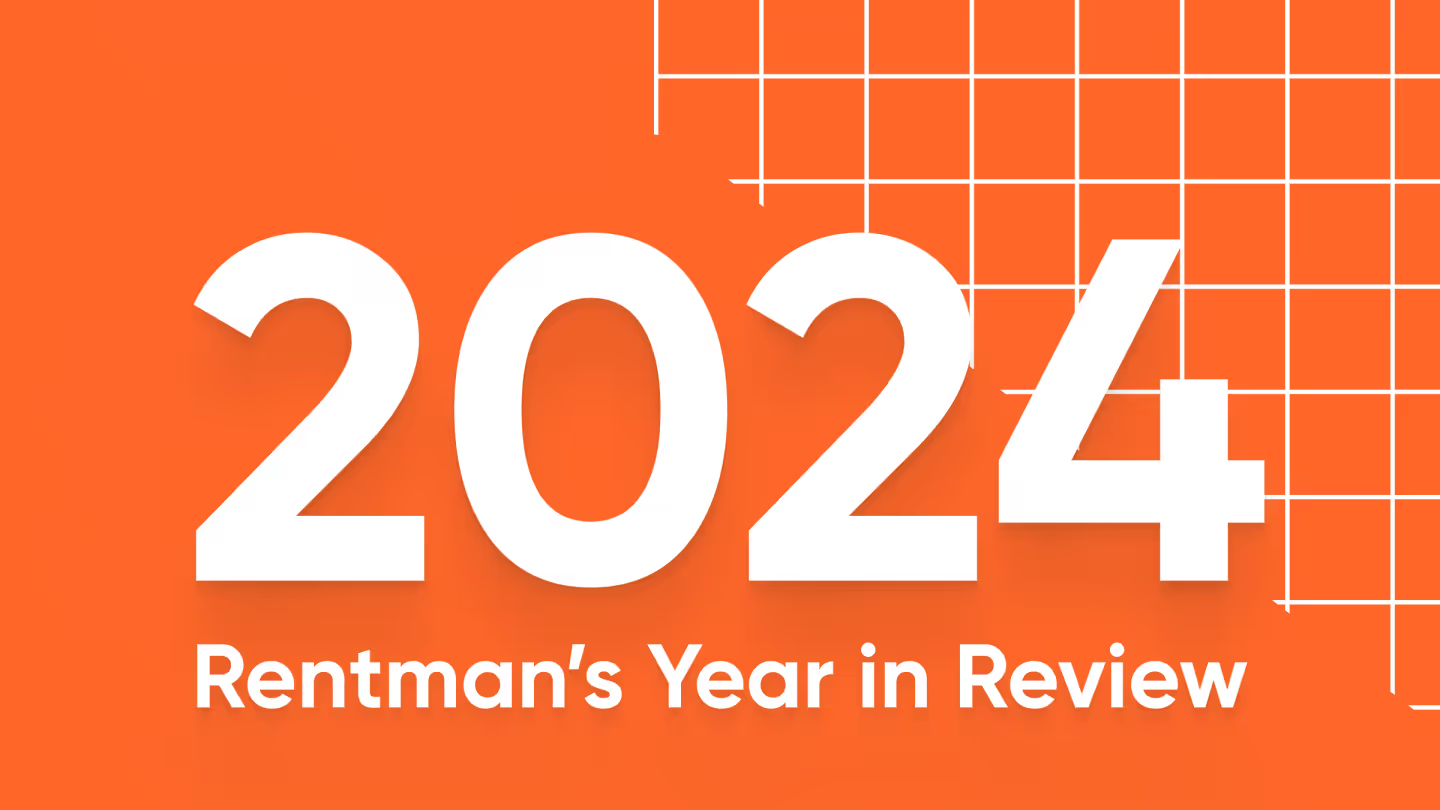Blog

4 consejos para llevar al día la gestión de tu personal este nuevo año
4 consejos para llevar al día la gestión de tu personal este nuevo año

Moderniza tu almacén con RFID: guía completa + lista de control para la implementación
Moderniza tu almacén con RFID: guía completa + lista de control para la implementación

Guía de gestión del equipo 2025: 5 preguntas frecuentes y soluciones de expertos
Guía de gestión del equipo 2025: 5 preguntas frecuentes y soluciones de expertos

8 cosas imprescindibles que hay que incluir en un presupuesto de producción de vídeo
8 cosas imprescindibles que hay que incluir en un presupuesto de producción de vídeo

Soluciones para las 3 frustraciones más comunes de los almacenes de AV
Soluciones para las 3 frustraciones más comunes de los almacenes de AV

Cómo configurar tus códigos QR y de barras en 7 sencillos pasos
Cómo configurar tus códigos QR y de barras en 7 sencillos pasos

¿Qué es un contrato de alquiler de equipos? + Plantilla gratuita
¿Qué es un contrato de alquiler de equipos? + Plantilla gratuita

Dominar el control de inventario para empresas de alquiler de equipos
Dominar el control de inventario para empresas de alquiler de equipos
Comenzar
Empiece hoy y recupere el tiempo para el trabajo que importa
Comienza gratis




.svg)
